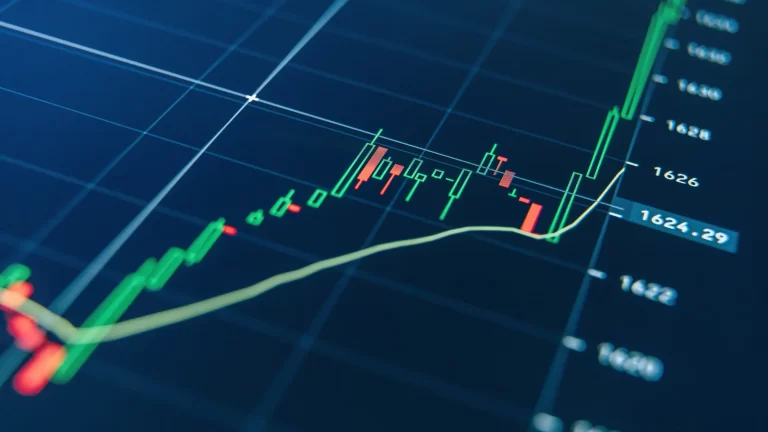Understanding Crypto Derivatives: Futures, Options, and Swaps

As the cryptocurrency market matures, traders and investors are increasingly turning to derivatives to manage risk, speculate on price movements, and enhance their trading strategies. Crypto derivatives, including futures, options, and swaps, offer sophisticated tools similar to those in traditional financial markets. This article will explore the different types of crypto derivatives, their uses, benefits, and the risks associated with them.
What Are Crypto Derivatives?
Crypto derivatives are financial contracts whose value is derived from an underlying cryptocurrency asset, such as Bitcoin or Ethereum. These contracts allow traders to speculate on the future price of the asset without actually owning it. The primary types of crypto derivatives are futures, options, and swaps.

Crypto Futures
Futures contracts are agreements to buy or sell a specific amount of a cryptocurrency at a predetermined price on a future date. Futures can be used for both hedging and speculative purposes.
Types of Futures:
- Standard Futures: Contracts with fixed expiration dates.
- Perpetual Futures: Contracts without an expiration date, commonly found on crypto exchanges.
Uses:
- Hedging: Traders use futures to hedge against potential price declines in their crypto holdings.
- Speculation: Traders speculate on the price movement of cryptocurrencies to profit from anticipated changes.
A trader believes Bitcoin’s price will rise in the next three months. They buy a Bitcoin futures contract at the current price, hoping to sell it at a higher price before the contract expires.
Crypto Options
Options contracts give traders the right, but not the obligation, to buy or sell a specific amount of a cryptocurrency at a predetermined price before or on a specific date.
Types of Options:
- Call Options: Contracts that give the holder the right to buy the underlying asset.
- Put Options: Contracts that give the holder the right to sell the underlying asset.
Uses:
- Hedging: Options can protect against adverse price movements in a trader’s portfolio.
- Speculation: Traders can speculate on the price direction of a cryptocurrency with limited risk.
A trader buys a call option for Ethereum with a strike price of $2,000, expiring in one month. If Ethereum’s price rises above $2,000, the trader can exercise the option to buy at the lower strike price and profit from the difference.

Crypto Swaps
Swaps are derivative contracts where two parties agree to exchange cash flows or other financial instruments over a specified period.
Types of Swaps:
- Interest Rate Swaps: Exchange of interest rate cash flows between two parties.
- Currency Swaps: Exchange of cash flows in different currencies.
- Commodity Swaps: Exchange of cash flows based on the price of a commodity.
Uses:
- Hedging: Swaps can mitigate exposure to fluctuations in interest rates, currencies, or commodity prices.
- Speculation: Traders can use swaps to speculate on price movements of the underlying assets.
A crypto lending platform uses interest rate swaps to manage its exposure to variable interest rates on its loans.
Benefits of Crypto Derivatives
Risk Management: Derivatives allow traders to hedge against price volatility and protect their portfolios from adverse price movements.
Leverage: Derivatives enable traders to gain exposure to larger positions with a smaller amount of capital, potentially amplifying returns.
Price Discovery: Derivatives markets contribute to better price discovery by reflecting market expectations about future price movements.
Liquidity: The derivatives market enhances liquidity by attracting more participants, including institutional investors, to the crypto market.
Risks of Crypto Derivatives
Leverage Risk: While leverage can amplify gains, it can also magnify losses, leading to significant financial risks.
Counterparty Risk: The risk that the other party in the derivatives contract may default on their obligations, particularly in over-the-counter (OTC) markets.
Market Risk: Derivatives are subject to market fluctuations, and adverse price movements can lead to substantial losses.
Regulatory Risk: The regulatory environment for crypto derivatives is still evolving, and changes in regulations can impact the market and its participants.
Complexity: Derivatives are complex financial instruments that require a deep understanding of the underlying markets and mechanisms.
Popular Platforms for Crypto Derivatives
Several platforms offer trading in crypto derivatives, each with its unique features and offerings:
PrimeXBT: A well-established crypto exchange with great UI and great market pairs in crypto futures, CFDs, forex and commodities. It is one of the best platforms for crypto copy trading.
BitMEX: A well-known platform for trading crypto futures and perpetual contracts.
Binance: Offers a wide range of derivatives, including futures, options, and leveraged tokens.
Deribit: Specializes in Bitcoin and Ethereum futures and options trading.
Strategies for Trading Crypto Derivatives
Hedging: Using derivatives to reduce the risk of adverse price movements in your portfolio. For example, buying put options to protect against a decline in the price of a crypto asset you hold.
Speculation: Taking advantage of price movements to generate profits. For instance, buying call options if you expect the price of a cryptocurrency to rise.
Arbitrage: Exploiting price differences between different markets or derivatives instruments to make risk-free profits.
Spread Trading: Simultaneously buying and selling two related derivatives to profit from the price difference between them.
Conclusion
Crypto derivatives, including futures, options, and swaps, offer powerful tools for managing risk, speculating on price movements, and enhancing trading strategies. While they provide numerous benefits, they also come with significant risks that require careful management. By understanding the different types of derivatives, their uses, and the associated risks, traders and investors can make more informed decisions and effectively navigate the dynamic cryptocurrency market. As always, thorough research, continuous learning, and prudent risk management are essential for success in the world of crypto derivatives.



